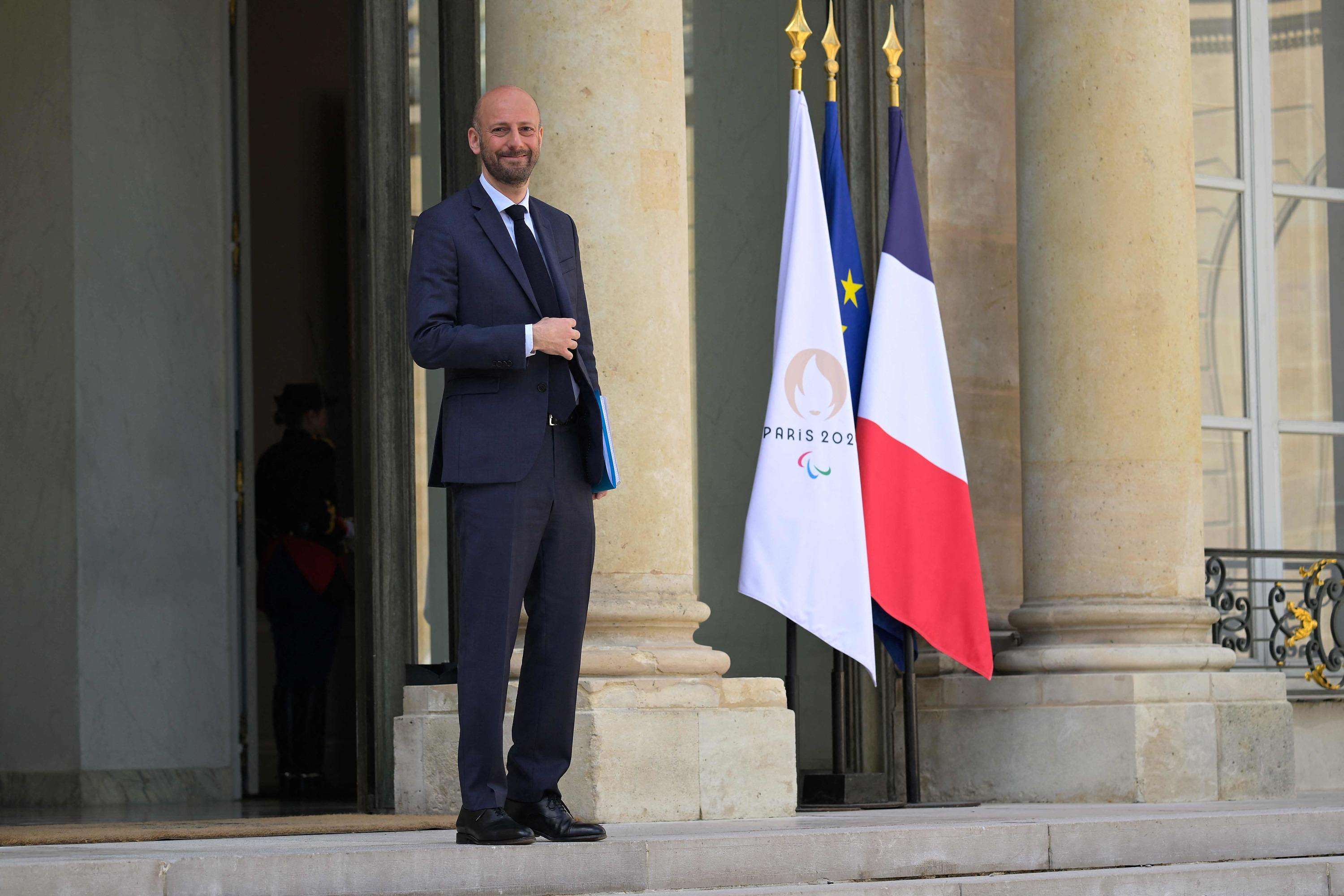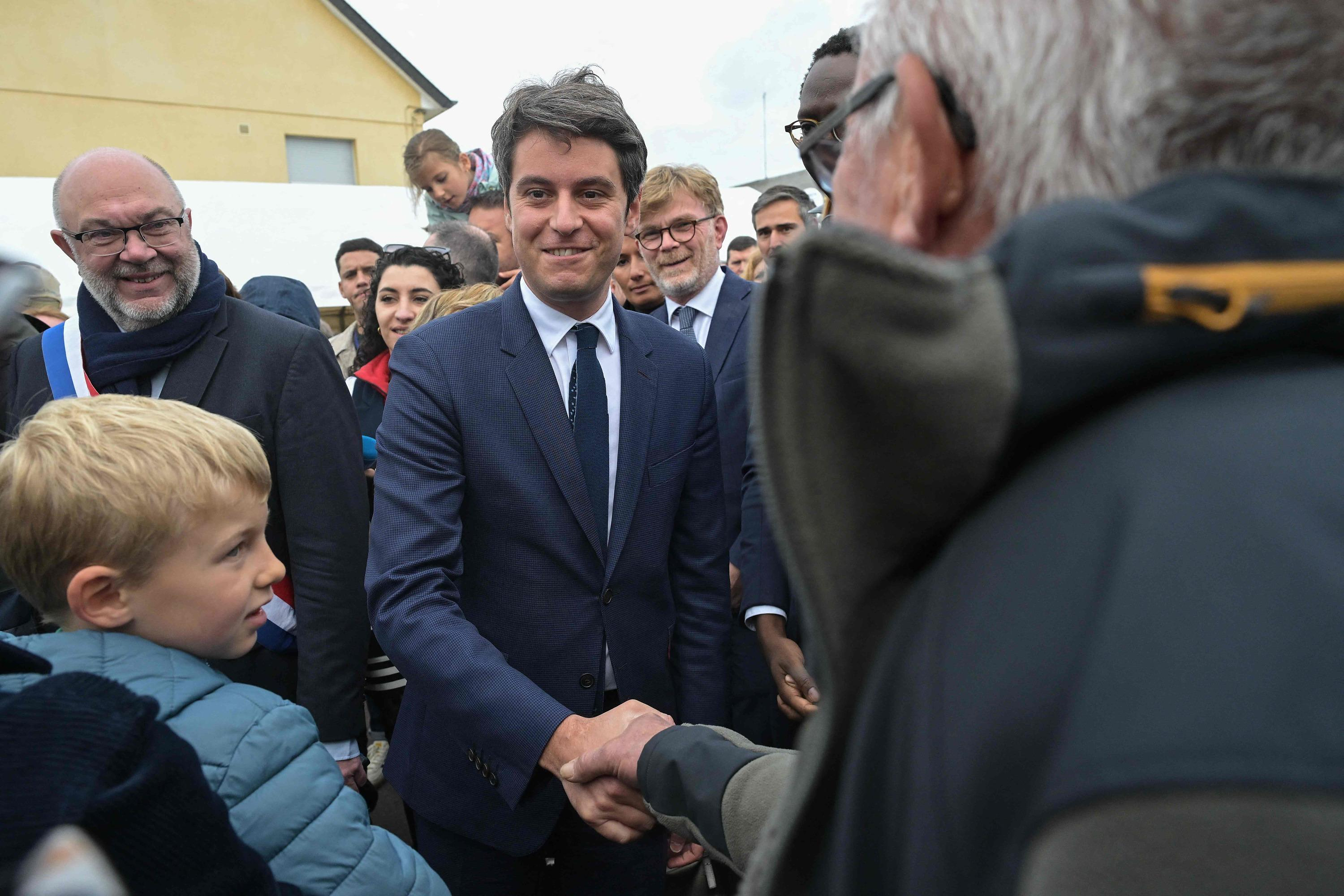For Manu Marín, CEO of Livall Europe, the MC1 "is the culmination of a vision" launched a decade ago and that began with its smart helmets for bikes and scooters - its disruptive BH51M NEO has been awarded at the CES in Las Vegas, the IFA in Berlin and has several iF Award design Oscars, the latest being the iF Gold Award in 2021-, with "the idea of making the technology of the digital age available to all road users".
After the success of these, Livall presents the MC1, a smart motorcycle helmet with ECE 22.06 approval (compulsory since July) that incorporates a Bluetooth connection, a 1.2-kilometre walkie-talkie, a 4K front camera to record more than 60 hours video, 360º emergency light and its patented autonomous SOS system in case of a fall. Behind the MC1 Pro (799 euros) there are eight years of research accumulated, plus three years of development and 170 patents. "The most complex thing has been breaking the structure of the sphere with the integrated 'V' [emergency light] and achieving certification," says Marín in an interview with EXPANSIÓN. "I wanted it to be yes or yes, and they finally found a way."
The DGT follows Livall's progress very closely (as it did in the homologation of its bike helmets) and has been very interested in the project, so much so that it has made some suggestion: to ensure that the information that appears on the panels of text on the road becomes a voice message to warn the motorist. "That would be immediate for us, it would be enough for their platform to connect with our application." "For us, the DGT has to be a prescriber and the great user [of the MC1], for me, it should be the Civil Guard... and from there, at the beginning, reach not so much the biker but the technological one. That profile that , as an 'early adopter', is changing his conventional motorcycle for an electric one", says Marín, "that has to be 100% ours".
In this sense, the agreement with Telefónica Tech (see attached information) will allow us to go further in actions like this, "so that we don't even have our mobile with us, we can interact directly with a 3G or 4G card in the helmet". And the next step? For Marín, everything has a clear thread: "It is about incorporating innovation in automotive technology into a helmet and that is what we are going for." Among other things, the possibility of projecting information inside the visor (Head-Up Display or HUD) is on the table, since it is fully developed in cars -something that today would create a situation perhaps too advanced, "only with this [the technology and possibilities of the MC1] we are already 10 years ahead of what the DGT has in mind, we have to go slowly", confesses Marín- and then "we would be talking not only about one camera, but about four or eight cameras that are at the service of the motorcyclist to be able to provide complete information". For this, "good connectivity is needed, 4G or 5G that Telefónica Tech will provide us, and the technology enabled for it: those cameras and an algorithm for our platform, which is what we are going to do for next year... But that is Livall, the hardware is an enabler of the services we want to provide", remarks Marín. He is so convinced of MC1 that he does not hide his "maximum aspiration" that "this helmet becomes a Moto-GP and Formula 1 helmet, it will be validated for it".
Livall will put the MC1 on a platform for pre-booking to test which markets to focus sales on and then start distribution in all the others. Looking ahead to 2023, the goal is to manufacture it (it will have a fiberglass version without a camera for 499 euros) in Spain and the development of the digital services platform. At first, Marín hopes to have "possibly more demand than the factory can operationally", so that the entire investment (around 1 million euros in total) will begin to have a return "in the last quarter of 2023, when sales are consolidated." Livall foresees that of the 7 million that he has as a billing target for next year, the MC1 "supposes a minimum of 30%".

 B:SM will break its investment record this year with 62 million euros
B:SM will break its investment record this year with 62 million euros War in Ukraine: when kyiv attacks Russia with inflatable balloons loaded with explosives
War in Ukraine: when kyiv attacks Russia with inflatable balloons loaded with explosives United States: divided on the question of presidential immunity, the Supreme Court offers respite to Trump
United States: divided on the question of presidential immunity, the Supreme Court offers respite to Trump Maurizio Molinari: “the Scurati affair, a European injury”
Maurizio Molinari: “the Scurati affair, a European injury” Irritable bowel syndrome: the effectiveness of low-carbohydrate diets is confirmed
Irritable bowel syndrome: the effectiveness of low-carbohydrate diets is confirmed Beware of the three main sources of poisoning in children
Beware of the three main sources of poisoning in children First three cases of “native” cholera confirmed in Mayotte
First three cases of “native” cholera confirmed in Mayotte Meningitis: compulsory vaccination for babies will be extended in 2025
Meningitis: compulsory vaccination for babies will be extended in 2025 In the United States, a Boeing 767 loses its emergency slide shortly after takeoff
In the United States, a Boeing 767 loses its emergency slide shortly after takeoff The A13 motorway will not reopen on May 1
The A13 motorway will not reopen on May 1 More than 1,500 items for less than 1 euro: the Dutch discounter Action opens a third store in Paris
More than 1,500 items for less than 1 euro: the Dutch discounter Action opens a third store in Paris 100 million euros in loans, water storage, Ecophyto plan… New measures from the executive towards farmers
100 million euros in loans, water storage, Ecophyto plan… New measures from the executive towards farmers Books poisoned with arsenic present in French libraries
Books poisoned with arsenic present in French libraries New York justice returns 30 works of art looted from Cambodia and Indonesia
New York justice returns 30 works of art looted from Cambodia and Indonesia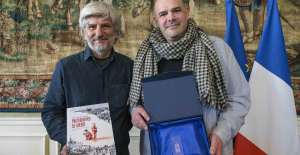 Les Galons de la BD dedicates War Photographers, a virtuoso album on the Spanish War
Les Galons de la BD dedicates War Photographers, a virtuoso album on the Spanish War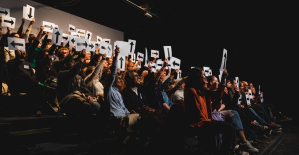 Theater: Kevin, or the example of an academic failure
Theater: Kevin, or the example of an academic failure Skoda Kodiaq 2024: a 'beast' plug-in hybrid SUV
Skoda Kodiaq 2024: a 'beast' plug-in hybrid SUV Tesla launches a new Model Y with 600 km of autonomy at a "more accessible price"
Tesla launches a new Model Y with 600 km of autonomy at a "more accessible price" The 10 best-selling cars in March 2024 in Spain: sales fall due to Easter
The 10 best-selling cars in March 2024 in Spain: sales fall due to Easter A private jet company buys more than 100 flying cars
A private jet company buys more than 100 flying cars This is how housing prices have changed in Spain in the last decade
This is how housing prices have changed in Spain in the last decade The home mortgage firm drops 10% in January and interest soars to 3.46%
The home mortgage firm drops 10% in January and interest soars to 3.46% The jewel of the Rocío de Nagüeles urbanization: a dream villa in Marbella
The jewel of the Rocío de Nagüeles urbanization: a dream villa in Marbella Rental prices grow by 7.3% in February: where does it go up and where does it go down?
Rental prices grow by 7.3% in February: where does it go up and where does it go down? Even on a mission for NATO, the Charles-de-Gaulle remains under French control, Lecornu responds to Mélenchon
Even on a mission for NATO, the Charles-de-Gaulle remains under French control, Lecornu responds to Mélenchon “Deadly Europe”, “economic decline”, immigration… What to remember from Emmanuel Macron’s speech at the Sorbonne
“Deadly Europe”, “economic decline”, immigration… What to remember from Emmanuel Macron’s speech at the Sorbonne Sale of Biogaran: The Republicans write to Emmanuel Macron
Sale of Biogaran: The Republicans write to Emmanuel Macron Europeans: “All those who claim that we don’t need Europe are liars”, criticizes Bayrou
Europeans: “All those who claim that we don’t need Europe are liars”, criticizes Bayrou These French cities that will boycott the World Cup in Qatar
These French cities that will boycott the World Cup in Qatar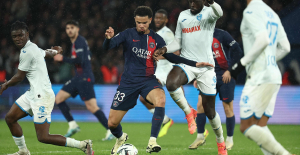 PSG: “Immense pride in continuing the adventure in Paris”, relishes Zaire-Emery
PSG: “Immense pride in continuing the adventure in Paris”, relishes Zaire-Emery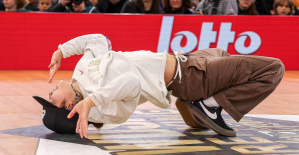 Breaking: everything you need to know about this sport
Breaking: everything you need to know about this sport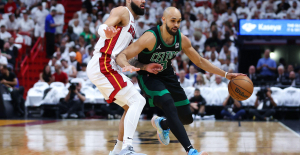 NBA: Lakers gain respite, Boston responds to Miami
NBA: Lakers gain respite, Boston responds to Miami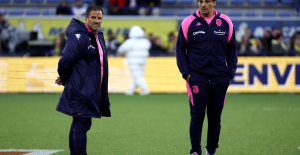 Top 14: “a very severe red card”, estimates Labit (French Stadium)
Top 14: “a very severe red card”, estimates Labit (French Stadium)





